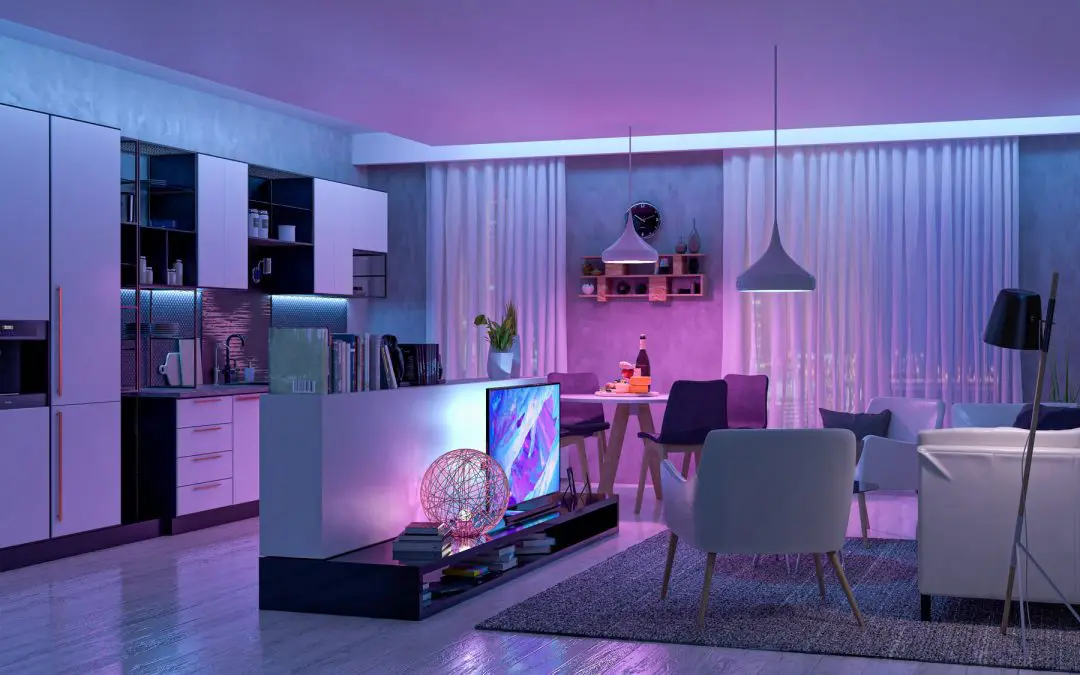As technology advances, the concept of a smart home evolves, offering many innovative features designed to enhance convenience, security, and efficiency. While many are familiar with basic smart devices like thermostats and lighting, several unique smart home features are transforming homes in unprecedented ways.
Smart Home Features: Intelligent Voice Assistants
Voice assistants like Amazon Alexa, Google Assistant, and Apple Siri have become integral to smart homes, but their capabilities extend beyond basic tasks. Modern voice assistants can now integrate with virtually every aspect of a house, from controlling appliances to managing energy consumption. These systems learn user preferences over time, offering personalized suggestions and automating daily routines for a customized living experience.
Advanced Home Security Systems
Smart home security has moved beyond simple cameras and motion detectors. Today’s systems include facial recognition technology, which can differentiate between family members, friends, and strangers. This allows for more tailored security responses, such as notifying homeowners only when unfamiliar faces are detected. Additionally, smart locks offer keyless entry, temporary access codes for guests, and integration with other smart devices for enhanced security management.
Smart Kitchens
The kitchen is becoming a hub of innovation with appliances that connect to the internet and each other. Smart refrigerators can track food inventory, suggest recipes based on available ingredients, and even place grocery orders automatically. Ovens and cooktops can be controlled remotely, ensuring meals are perfectly cooked without constant monitoring. These advancements streamline meal preparation and ensure efficiency in the kitchen.
Smart Home Features for Health Monitoring
Smart home technology is increasingly focusing on health and wellness. Wearable devices and in-home sensors can monitor vital signs, sleep patterns, and activity levels, providing valuable insights into one’s health. Some systems can even detect falls or other emergencies, automatically alerting caregivers or medical professionals. Integrating health monitoring into the home environment offers peace of mind and promotes healthier living.
Energy Management Systems
Energy efficiency is a top priority for many homeowners and smart energy management systems are making it easier than ever. These systems analyze energy usage patterns and provide recommendations for reducing consumption. Smart meters, connected to various devices, can automate energy-saving measures, such as adjusting the thermostat when no one is home or turning off lights in unoccupied rooms. Solar panel integration and battery storage solutions further enhance energy independence and sustainability.
Personalized Entertainment Experiences
Entertainment systems in smart homes are becoming increasingly sophisticated, offering personalized experiences tailored to individual preferences. Smart TVs and sound systems can recommend content based on viewing history, while multi-room audio systems allow for seamless music playback throughout the home. Virtual reality (VR) and augmented reality (AR) are also being integrated, transforming living rooms into immersive entertainment hubs.
Smart Bathrooms
The concept of a smart home extends to the bathroom, where technology enhances comfort and efficiency. Smart showers can be programmed to the preferred temperature and water flow, ensuring a perfect shower every time. Toilets with built-in bidet functions, heated seats, and self-cleaning capabilities are becoming more common. Additionally, smart mirrors with integrated displays provide real-time weather updates, news, and personalized health information.
Automated Gardening Systems
For those with a green thumb, smart gardening systems offer an innovative way to maintain lush gardens with minimal effort. These systems can monitor soil moisture levels, weather conditions, and plant health, providing automated watering and fertilization schedules. Some even offer pest detection and control, ensuring plants remain healthy and vibrant.
Smart Home Features for Climate Control
Beyond basic thermostats, advanced climate control systems can manage multiple zones within a home, ensuring optimal comfort in every room. These systems can adjust settings based on occupancy, time of day, and even weather forecasts. Integration with other smart devices, such as window shades and ceiling fans, further enhances climate control efficiency and comfort.
Smart Laundry Solutions
Laundry rooms also benefit from smart technology. Washing machines and dryers can now be controlled remotely, allowing users to start or stop cycles from anywhere. These appliances can also monitor water and energy usage, provide maintenance alerts, and suggest optimal settings for different laundry loads. This ensures clothes are cared for efficiently and effectively.
The future of smart homes is inspiring, with unique features that go far beyond basic automation. From advanced security and health monitoring to personalized entertainment and efficient energy management, smart homes are redefining modern living. As technology advances, we can expect even more innovative solutions that make our homes more comfortable, secure, and sustainable.
Smart Home FAQs
Are there any ongoing costs associated with smart home devices?
Some smart home devices may have ongoing costs, such as subscription fees for advanced features, cloud storage for security cameras, or software updates. When setting up a smart home, factor these potential costs into your budget.
Can smart home technology assist people with disabilities?
Absolutely. Smart home technology can significantly enhance accessibility and independence for people with disabilities. Voice-controlled assistants, automated lighting, and adjustable home settings can help create a more accessible living environment.
Can smart home systems help reduce utility bills?
Yes, smart home systems can help reduce utility bills by optimizing energy usage. Smart thermostats, lighting, and appliances can adjust their operation based on occupancy, time of day, and user preferences, leading to more efficient energy consumption.
What is the lifespan of typical smart home devices?
The lifespan of smart home devices can vary, but most are designed to last several years. Regular software updates and maintenance can help extend the lifespan of these devices. When purchasing smart home products, it’s also worth considering the manufacturer’s warranty and support policies.
GreenTech Home Inspections offers inspections to homebuyers and sellers in the Las Vegas area. Contact us to request our services.

